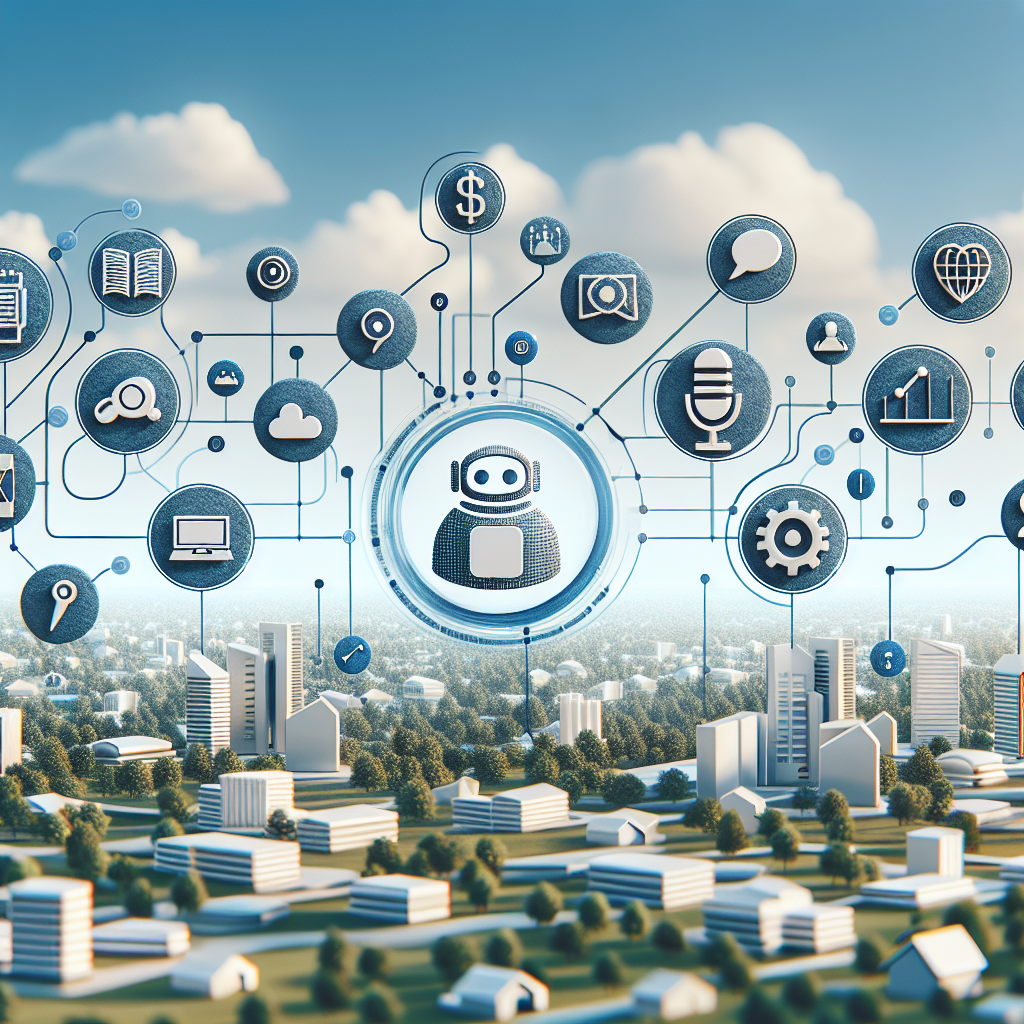Natural Language Processing (NLP) is a branch of artificial intelligence that focuses on the interaction between computers and humans using natural language. NLP enables computers to understand, interpret, and generate human language in a way that is valuable and meaningful. This technology has a wide range of applications in various industries, revolutionizing the way businesses operate and interact with their customers. In this article, we will explore the applications of NLP in industry and how it is transforming the way businesses communicate and operate.
1. Customer Service
One of the most common applications of NLP in industry is in customer service. NLP-powered chatbots and virtual assistants are being used by businesses to provide instant and personalized customer support. These chatbots can understand and respond to customer queries in real-time, providing a seamless customer experience. By using NLP, businesses can automate customer service processes, reduce response times, and improve customer satisfaction.
2. Sentiment Analysis
Sentiment analysis is another key application of NLP in industry. Businesses are using NLP algorithms to analyze and understand customer sentiments based on their interactions on social media, customer reviews, and feedback. By analyzing the sentiment of customers, businesses can gain valuable insights into customer preferences, opinions, and attitudes. This information can be used to improve products and services, enhance marketing strategies, and better understand customer needs.
3. Text Summarization
NLP algorithms can be used for text summarization, which involves generating a concise summary of a large volume of text. Businesses can use text summarization tools to extract key information from documents, articles, and reports, saving time and improving productivity. Text summarization can be especially useful in industries such as finance, legal, and healthcare, where professionals need to quickly extract relevant information from large volumes of textual data.
4. Language Translation
NLP has revolutionized language translation by enabling accurate and efficient machine translation. Businesses can use NLP-powered translation tools to translate documents, websites, and communications into multiple languages, expanding their reach and global presence. Language translation tools powered by NLP algorithms can provide high-quality translations that are almost indistinguishable from human translations, making it easier for businesses to communicate with customers and partners around the world.
5. Voice Recognition
Voice recognition is another important application of NLP in industry. Businesses are using NLP algorithms to develop voice recognition systems that can accurately transcribe spoken language into text. Voice recognition technology is being used in a wide range of industries, from healthcare to finance, to improve efficiency and productivity. Voice recognition systems powered by NLP algorithms can help businesses automate tasks, streamline workflows, and enhance the user experience.
6. Fraud Detection
NLP algorithms can be used for fraud detection in industries such as banking, insurance, and e-commerce. By analyzing textual data such as transaction records, customer communications, and social media interactions, NLP algorithms can identify patterns and anomalies that indicate fraudulent activity. Businesses can use NLP-powered fraud detection systems to detect and prevent fraud in real-time, safeguarding their assets and protecting their customers.
7. Market Research
NLP is also being used in market research to analyze consumer behavior, preferences, and trends. Businesses can use NLP algorithms to analyze online reviews, social media posts, and customer feedback to gain valuable insights into consumer sentiment and preferences. By leveraging NLP for market research, businesses can make data-driven decisions, improve products and services, and enhance their marketing strategies.
Frequently Asked Questions (FAQs):
Q: How accurate are NLP algorithms in understanding human language?
A: NLP algorithms have made significant advancements in recent years and are now capable of understanding human language with a high degree of accuracy. However, the accuracy of NLP algorithms can vary depending on the complexity of the language and the specific use case.
Q: Can NLP algorithms be trained to understand multiple languages?
A: Yes, NLP algorithms can be trained to understand and process multiple languages. By training NLP algorithms on multilingual datasets, businesses can develop language-agnostic models that can accurately interpret and generate text in multiple languages.
Q: How can businesses implement NLP in their operations?
A: Businesses can implement NLP in their operations by leveraging pre-built NLP tools and platforms or developing custom NLP solutions tailored to their specific needs. By partnering with NLP experts and data scientists, businesses can integrate NLP technology into their existing systems and processes to improve efficiency and productivity.
Q: What are the privacy and security implications of using NLP?
A: Businesses must be mindful of privacy and security implications when using NLP technology, especially when processing sensitive or personal data. By implementing robust data protection measures, such as encryption, access controls, and data anonymization, businesses can ensure the privacy and security of their data when using NLP.
In conclusion, the applications of Natural Language Processing (NLP) in industry are vast and diverse, revolutionizing the way businesses operate and interact with their customers. From customer service and sentiment analysis to text summarization and language translation, NLP is transforming the way businesses communicate, analyze data, and make decisions. By leveraging NLP technology, businesses can improve efficiency, enhance customer experience, and gain valuable insights that drive growth and innovation.

